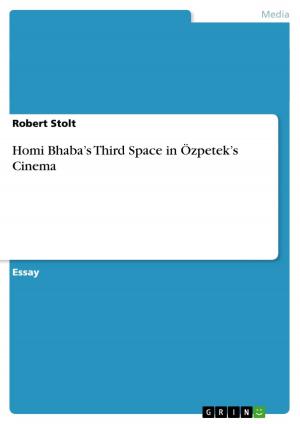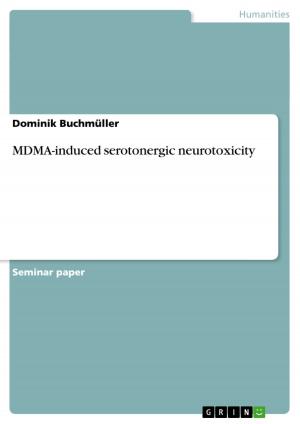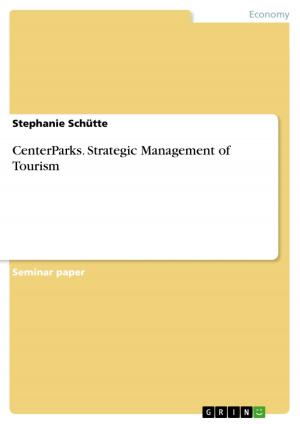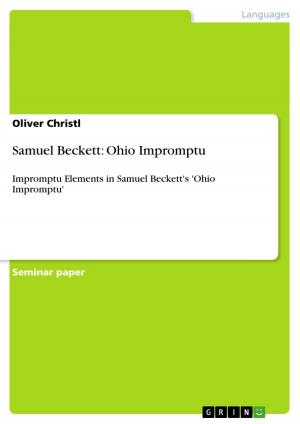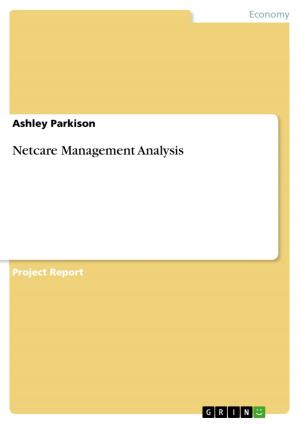John the Savage and the Bard of Stratford. Shakespeare's Influence on John the Savage in Huxley's 'Brave New World'
Fiction & Literature, Literary Theory & Criticism, British| Author: | Bettina Hajek | ISBN: | 9783656886662 |
| Publisher: | GRIN Publishing | Publication: | January 29, 2015 |
| Imprint: | GRIN Publishing | Language: | English |
| Author: | Bettina Hajek |
| ISBN: | 9783656886662 |
| Publisher: | GRIN Publishing |
| Publication: | January 29, 2015 |
| Imprint: | GRIN Publishing |
| Language: | English |
Seminar paper from the year 2013 in the subject English Language and Literature Studies - Literature, grade: 1,7, , course: Seminary: Literary Works and Their Contexts, language: English, abstract: As Aldous Huxley (1894-1963) was unable to pursue his chosen career as a scientist and could not fight in World War II due to a disease that caused him to be almost blind, he turned to writing and throughout his career published numerous caricatures, essays, sketches, and four novels. (Jalic Inc., 2000) His dystopian novel Brave New World was published in 1932. It represented his most successful novel and it may be said that '[a]llusions of The Tempest and other Shakespearean works make Brave New World one of the most complex and significant, as well as best known, works of twentieth century fiction.' (Powell, 1991, P. ii) That Huxley took Miranda's words in Shakespeare's comedy The Tempest in order to form a title for his own book Brave New World is not a secret anymore. However, to some it could be a surprising fact that Huxley did not only use Miranda's words, but statements of 16 different Shakespearean plays in total. Also, Huxley did not divide the quotations among his characters - he gave all of them to one single character: John. In this seminar paper, Aldous Huxley's character John the Savage is examined for Shakespearean influence. In the final part of the paper, answers are found to how and why John the Savage quotes Shakespearean plays. In order to provide a sufficient base for the examination of the book, first, there has to be taken a look at Shakespeare himself and the time he lived in. After searching the Elizabethan Age for its ideals and norms, three of the Shakespearean plays are looked at closer: Othello, The Tempest and Romeo and Juliet, as these are thought to have the biggest influence on John. Furthermore, a short overview of Aldous Huxley himself and the book Brave New World is given and followed by a characterization of the Savage.
Bettina Hajek wurde am 22.11.1988 in Dingolfing geboren. Sie wuchs in Niederbayern auf und erzielte in der Kleinstadt Rottenburg ihren ersten Schulabschluss. Da ihr die Mittlere Reife nicht genug war holte sie nach einer Ausbildung mittels der Berufsoberschule ihr Abitur nach. Von 2009 bis 2014 studierte sie an der Katholischen Universität Eichstätt-Ingolstadt Anglistik/Amerikanistik und Hispanistik und erzielte den Masterabschluss. Heute bildet sich Frau Hajek in den Bereichen Wirtschaft und Informatik weiter, um so ihre Karriere optimal auszubauen.
Seminar paper from the year 2013 in the subject English Language and Literature Studies - Literature, grade: 1,7, , course: Seminary: Literary Works and Their Contexts, language: English, abstract: As Aldous Huxley (1894-1963) was unable to pursue his chosen career as a scientist and could not fight in World War II due to a disease that caused him to be almost blind, he turned to writing and throughout his career published numerous caricatures, essays, sketches, and four novels. (Jalic Inc., 2000) His dystopian novel Brave New World was published in 1932. It represented his most successful novel and it may be said that '[a]llusions of The Tempest and other Shakespearean works make Brave New World one of the most complex and significant, as well as best known, works of twentieth century fiction.' (Powell, 1991, P. ii) That Huxley took Miranda's words in Shakespeare's comedy The Tempest in order to form a title for his own book Brave New World is not a secret anymore. However, to some it could be a surprising fact that Huxley did not only use Miranda's words, but statements of 16 different Shakespearean plays in total. Also, Huxley did not divide the quotations among his characters - he gave all of them to one single character: John. In this seminar paper, Aldous Huxley's character John the Savage is examined for Shakespearean influence. In the final part of the paper, answers are found to how and why John the Savage quotes Shakespearean plays. In order to provide a sufficient base for the examination of the book, first, there has to be taken a look at Shakespeare himself and the time he lived in. After searching the Elizabethan Age for its ideals and norms, three of the Shakespearean plays are looked at closer: Othello, The Tempest and Romeo and Juliet, as these are thought to have the biggest influence on John. Furthermore, a short overview of Aldous Huxley himself and the book Brave New World is given and followed by a characterization of the Savage.
Bettina Hajek wurde am 22.11.1988 in Dingolfing geboren. Sie wuchs in Niederbayern auf und erzielte in der Kleinstadt Rottenburg ihren ersten Schulabschluss. Da ihr die Mittlere Reife nicht genug war holte sie nach einer Ausbildung mittels der Berufsoberschule ihr Abitur nach. Von 2009 bis 2014 studierte sie an der Katholischen Universität Eichstätt-Ingolstadt Anglistik/Amerikanistik und Hispanistik und erzielte den Masterabschluss. Heute bildet sich Frau Hajek in den Bereichen Wirtschaft und Informatik weiter, um so ihre Karriere optimal auszubauen.



